belief
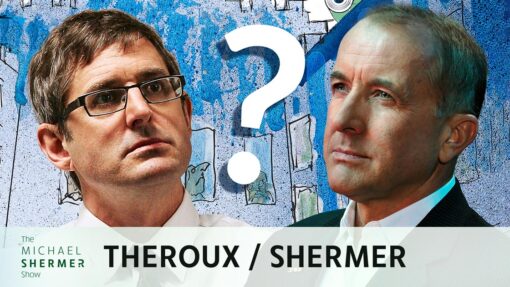
Shermer and Theroux discuss: how documentary films are made • religious fanaticism • UFO cults • Scientology • neo-Nazis • anti-Semitism • prisons, pornography, and prostitution • Jeffrey Epstein and Jimmy Savile • self-help movements and gurus • deception and self-deception • social proof and human conformity • are humans naturally rational, irrational, or both?
Michael Shermer Speaks With Louis Theroux About Neo-Nazis, Jimmy Savile, UFO Cults, and Scientology. PLUS: In SRC Report PCIS-006, we take a look at Conspiracy Theory Endorsement by Media Viewership.
“Havana Syndrome” is the latest in a long list of health scares involving the fear of new technology. The present panic involves claims of a secret weapon that uses sound or microwaves to zap people anywhere in the world. Robert Bartholomew examines some of the sensational claims made in a recent 60 Minutes episode suggesting White House attacks amid ongoing political tensions with Russia.

“Havana Syndrome” is the latest in a long list of health scares involving the fear of new technology. The present panic involves claims of a secret weapon that uses sound or microwaves to zap people anywhere in the world. Robert Bartholomew examines some of the sensational claims made in a recent 60 Minutes episode suggesting White House attacks amid ongoing political tensions with Russia.
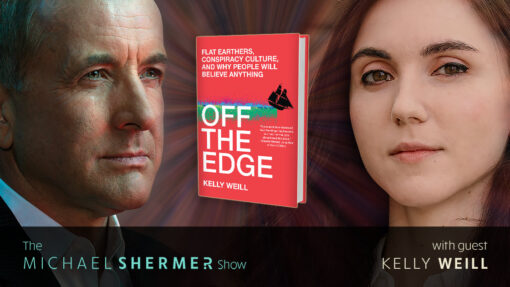
Michael Shermer speaks with journalist Kelly Weill whose work covers extremism, disinformation, and online conspiracy theories in current affairs. The conversation is based on her book Off the Edge which tells a powerful story about belief, polarized realities, and what needs to happen so that we might all return to the same spinning globe.
Michael Shermer speaks with journalist Kelly Weill whose work covers extremism, disinformation, and online conspiracy theories in current affairs. The conversation is based on her book Off the Edge which tells a powerful story about belief, polarized realities, and what needs to happen so that we might all return to the same spinning globe.
Read the Skeptic Research Center’s general report, “Pandemic Politics: How 2020 Impacted Americans’ Social and Political Attitudes,” based on their nine reports from the Civil Unrest and Presidential Election Study (CUPES) released in late 2020–early 2021. PLUS: Michael Shermer speaks with author, journalist, and TV personality Nick Pope about UAPs, UFOs, conspiracies, and cover-ups.
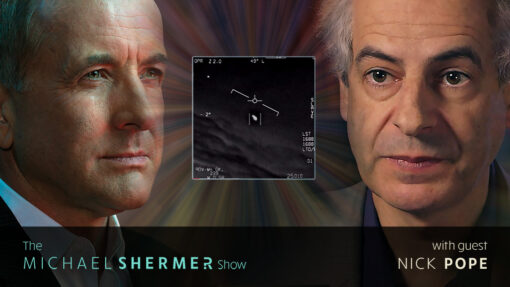
Author, journalist and TV personality Nick Pope ran the British government’s UFO program for the Ministry of Defense, leading the media to call him the real Fox Mulder. He’s recognized as one of the world’s leading experts on UFOs, the unexplained, and conspiracy theories. Nick is the media’s go-to person for UFOs.
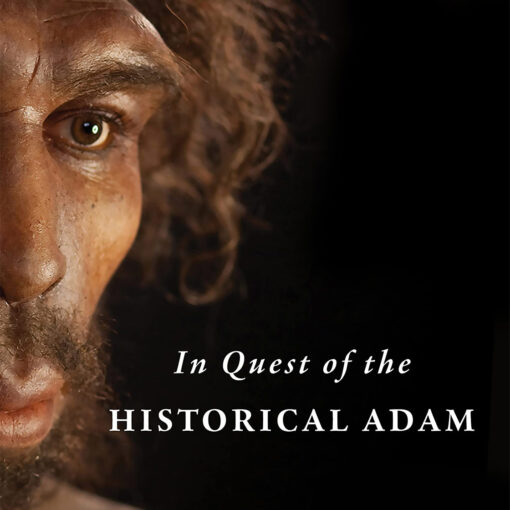
One of the most influential conservative Christian theologians goes all-in for evolutionary science and finds room for a Paleolithic Adam and Eve. This has left some schools of Christian orthodoxy scrambling to find a way forward. With any luck, they may start to reevaluate their opposition to evolution altogether.
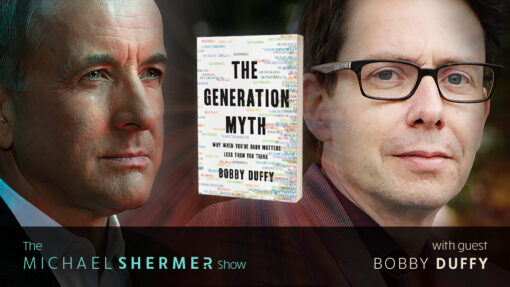
Boomers are narcissists. Millennials are spoiled. Gen Zers are lazy. We assume people born around the same time have basically the same values. But, do they? In episode 224 Michael Shermer speaks with social researcher Bobby Duffy who has spent years studying generational distinctions. In The Generation Myth, he argues that our generational identities are not fixed but fluid, reforming throughout our lives.
Boomers are narcissists. Millennials are spoiled. Gen Zers are lazy. We assume people born around the same time have basically the same values. But, do they? In episode 224 Michael Shermer speaks with social researcher Bobby Duffy who has spent years studying generational distinctions. In The Generation Myth, he argues that our generational identities are not fixed but fluid, reforming throughout our lives.
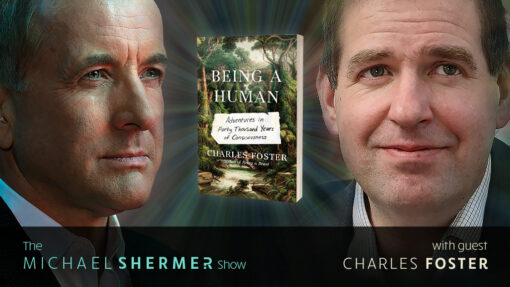
In episode 220, Michael Shermer speaks with Charles Foster about his book Being a Human: Adventures in Forty Thousand Years of Consciousness. Drawing on psychology, neuroscience, natural history, agriculture, medical law and ethics, Charles Foster makes an audacious attempt to feel a connection with 45,000 years of human history.
In episode 220, Michael Shermer speaks with Charles Foster about his book Being a Human: Adventures in Forty Thousand Years of Consciousness. Drawing on psychology, neuroscience, natural history, agriculture, medical law and ethics, Charles Foster makes an audacious attempt to feel a connection with 45,000 years of human history.
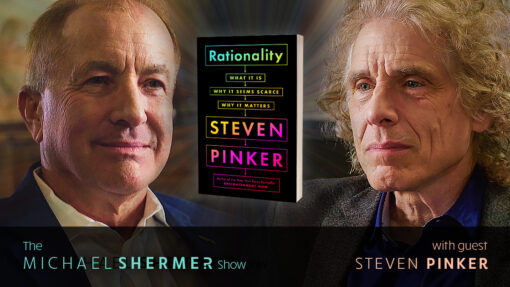
In episode 219, Michael Shermer speaks in person with Harvard psychologist Steven Pinker about his new book Rationality, about how today humanity is reaching new heights of scientific understanding — and also appears to be losing its mind. How can a species that developed vaccines for COVID-19 in less than a year produce so much fake news, medical quackery, and conspiracy theorizing?
In episode 219, Michael Shermer speaks in person with Harvard psychologist Steven Pinker about his new book Rationality, about how today humanity is reaching new heights of scientific understanding — and also appears to be losing its mind. How can a species that developed vaccines for COVID-19 in less than a year produce so much fake news, medical quackery, and conspiracy theorizing?
In episode 216, Michael Shermer speaks with Kathryn Paige Harden about her book The Genetic Lottery: Why DNA Matters for Social Equality. PLUS Robert Bartholomew Havana Syndrome Hysteria and the recent U.S. Government investigation into this probable psychogenic illness.

Have foreign agents been committing nefarious deeds, targeting dozens of American and Canadian diplomats and their families with an energy weapon, or is Havana Syndrome a social panic aided by sensational journalism, dubious science, and social media conspiracy theories? The contents of a U.S. Government investigation into “Havana Syndrome” released under the Freedom of Information Act, concluded that mass psychogenic illness likely played a major role.
In episode 213, Michael Shermer speaks with Mike Rothschild, a journalist specializing in conspiracy theories, about QAnon and its followers, based on his book The Storm Is upon Us: How QAnon Became a Movement, Cult, and Conspiracy Theory of Everything. PLUS, we present as a free PDF download the Memorial Tribute to Skeptic’s Art Director and Co-Founder, Pat Linse, which appeared in Skeptic 26.3 (2021).
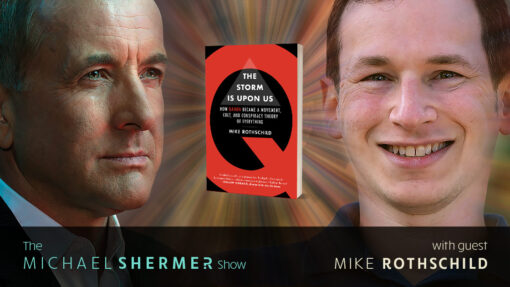
Its messaging can seem cryptic, even nonsensical, yet for tens of thousands of people, it explains everything: What is QAnon, where did it come from, and is the Capitol insurgency a sign of where it’s going next? Mike Rothschild is a journalist specializing in conspiracy theories. He has been collecting stories for years through interviews with QAnon converts, apostates, and victims, as well as psychologists, sociologists, and academics. He is uniquely equipped to explain the movement and its followers.
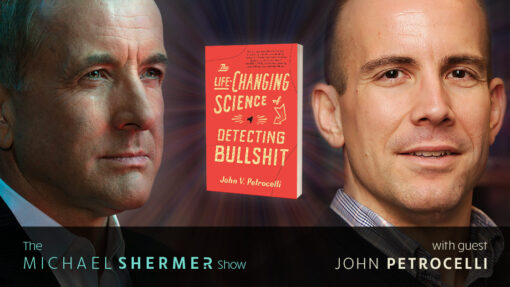
In episode # 207, Michael Shermer speaks with experimental social psychologist and Professor of Psychology at Wake Forest University, John Petrocelli about his research that examines the causes and consequences of bullshit and bullshitting in the way of better understanding and improving bullshit detection and disposal.
← PREVIOUS
NEXT →





















